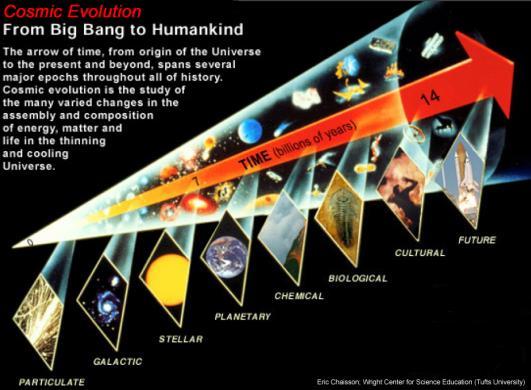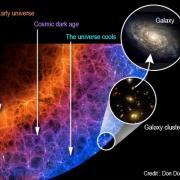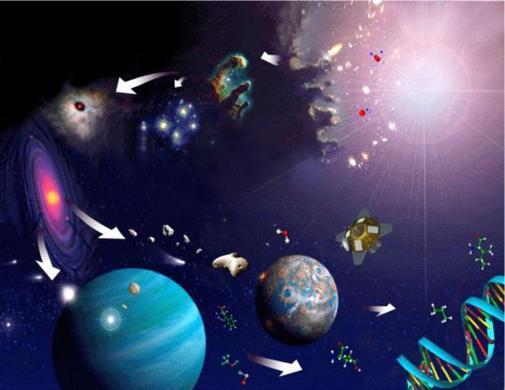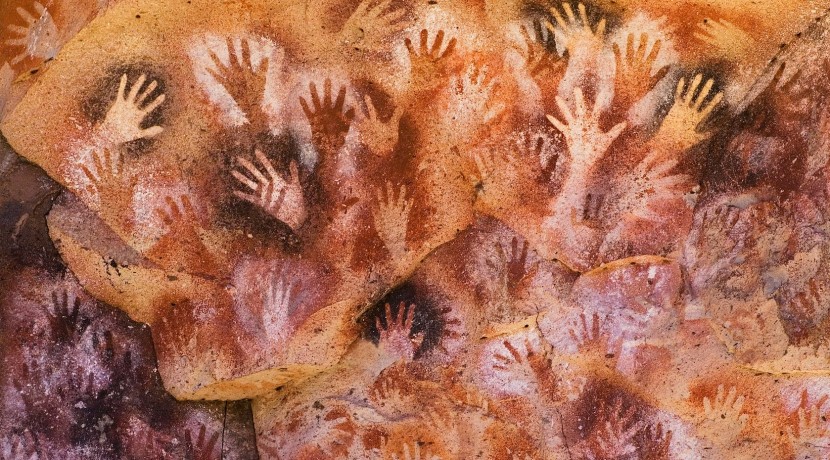Nature and Cosmic Evolution
Ever since the Big Bang originated the universe, all that exists and is entered in an everlasting Cosmic Evolution; not just life, but also our planet and the universe as a whole, in ohter words, all of nature.
This evolution is characterized by just one constantly repeating event: nothing else but a continuous increase of existing complexity.

Everything that exists is part of Nature
Nature is the one generic denominator of all that exists. Nature does not just include life like animals and plants, it also means dead material like water, mountains, even the whole planet, the solar system and the universe itself, including all it's phenomena. Light, sound or movement are manifestations of nature.
Nature's prime tendency: Evolution
Immediately after the Big Bang, about 14.000 million years ago, during the initial expansion, Cosmic Evolution started very fast. The initial emergence of space, time, energy, particles and atoms happened at a speed that surpases our imagination. Then it slowed down for billions of years when forming galaxies through the birth and re-birth of stars and planets. And now, quite recently, after the emergence of complex life on earth only some 500 million years ago, the pace seems to have accelerated again, up to the comparitively very fast emergence of consciousness, knowledge and complex society in Homo Sapiens just some 0,2 million years ago. More recently, over the last few centuries, modern man or actually modern society is evolving at yet a higher speed. On a cosmic scale it is actually a revolution. As far as we know this modern society (more than individual man) is the highest level of complexity that has been reached by nature so far.
The future path of this (r)evolution of man and society is Human Progress' main concern.
Chronology of evolution of Cosmos, Earth, Life, Humans and Society
The Timeline as a list:
- "Beginning of" or emergence, expressed in "years ago" - mostly wikipedia estimations;
- MEE = Mass Extinction Event, with "years ago" estimations according to the BBC;
- International punctuation (metric system and format of course);
- Followed in parentheses by the relative value of the 100 year scale (or % if you want) used for our Timeline, that starts with the formation of the Solar system, roughly established at 5 Billion years ago.
Big Bang and Cosmos are placed at +2 and +4 on this Timeline, since negative years unfortunately don't work (support the proposal for Anno Hominis, Anno Terrae or Anno Universalis at Inspirationtree.org ;)

- Years ago (relative 100year time scale) - emergence of what?
- 13.800.000.000 (-176) - the Big Bang
leading to the emergence of everything that exists in the Cosmos
including space and time itself, all matter and energy, from atoms to galaxies, from cosmic forces to radiation and vibration. - 5.000.000.000 (00) - Solar dust cloud
- 4.600.000.000 (08) - Earth
- 4.200.000.000 (16) - Moon, Crust, Oceans
- 3.800.000.000 (24) - early/proto- life
- 3.600.000.000 (28) - simple cells (prokaryotes)
- 3.400.000.000 (32) - photosynthesis
- 2.000.000.000 (60) - complex cells (eukaryotes)
- 1.000.000.000 (80) - multicellular life
- 600.000.000 (88) - simple animals
- 550.000.000 (89) - bilaterians, water life forms with a front and a back
- 500.000.000 (90) - fish and proto-amphibians
- 475.000.000 (90,5) - land plants;
- 443.000.000 (91,1) - 1st MEE, Ordovician Silurian
- 400.000.000 (92) - insects and seeds;
- 359.000.000 (92,8) - 2nd MEE, Late Devonian
- 360.000.000 (92,8) - amphibians;
- 300.000.000 (94) - reptiles;
- 248.000.000 (95) - 3rd MEE, Permian
- 200.000.000 (96) - 4th MEE, Triassic-Jurassic
- 200.000.000 (96) - mammals;
- 150.000.000 (97) - birds;
- 130.000.000 (97,4) - flowers;
- 65.000.000 (98,7) - 5th MEE, Cretaceous-Tertiary (K/T)
- 60.000.000 (98,6) - primates
- 20.000.000 (99,6) - great apes
- 2.500.000 (99,95) - human predecessors
- 200.000 (99,996) - anatomically modern humans (Homo Sapiens)
if the Earth is taken to be a 100 years old, humanity would only have appeared in the last 35 hours. - 20.000 (99,9996) - earliest, possibly unknown or lost, civilizations (3,5 hours ago)
- 500 (99,99999) - modern society, beginning of 6th MEE, Anthropocene (5,2 minutes ago)
- 50 (99,999999) - you and me (plus or minus 40 years - 31,2 seconds ago)
Cosmic evolution through increase of complexity

This picture exemplifies the increasing complexity in cosmic evolution: from the chemical elements synthesized in stars, up to planet formation, and life appearance. Marco Polo-R ESA mission can provide significant insight in all these fields of knowledge (Credit: Marco Polo-R/ESA).
Complexity in the Universe
Backed by stunning illustrations, David Christian narrates a complete history of the universe, from the Big Bang to the Internet, in a riveting 18 minutes. This is "Big History": an enlightening, wide-angle look at complexity, life and humanity, set against our slim share of the cosmic timeline.
References
References to explanations and arguments in videos on this site (as long as they don't disappear from youtube)
- Our earth is 4.550 million years old
"The earth's date of birth was 4,55 billion years ago"
Youtube video: The day the earth was born [part 1/2] - at 11:30 (on site-page: Origin and formation of the Earth) - Earth's crust and first oceans formed 4.400 million years ago
describes arrival of water (ice) from comets: "like giant dirty snowballs, roughly half their mass is water"
Youtube video: The day the earth was born - at 30:30 - less than 1 billion years after the earth formed
- We are looking for a process that was a stepwise transition from simple chemistry to more complex chemistry and to biology. We know that if you take the atmosphere of the early earth and some basic elements, charge electricity, like lightning, trough it, you can create simple organic molecules such as aminoacids. Volcanic vents in the deep sea also produce these basic building blocks of life and it turns out that these bio-molecules even get created in space.
- We also know that whenever the basic blocks are around, if you add an energy source and more elements you often get greater and greater complexity.
- Carbon happens to be the most likely element for life, as it links in lots of interesting ways to most other elements. It almost can't stop itself. With abundant carbon-rich material, liquid water and diverse sources of energy, the early earth seems to have taken less than a billion years to produce the very first life forms.
Video: How life began - at 1:00 - 3,6 billion years ago - only single cell life
The puzzle is this: for the first billion years or so life on earth consisted entirely of simple single cells like bacteria and archea. And the suddenly, around two billion years ago complex cells appeared [...] and it seems they appeared out of the blue.
Video: How did the evolution of complex life on Earth begin? - at 0:34 - 2,6 billion years ago - complex cell life appears (same video)
- Log in to post comments
- Printer-friendly version







